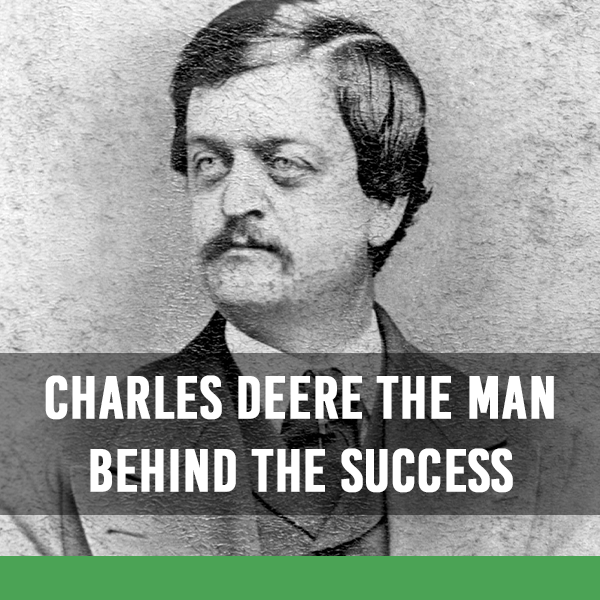Sure, you’ve heard of John Deere, the name behind the famous brand many have come to know and love. But do you know about the other Deere who was responsible for the company’s successful growth before and during the turn of the 20th century? That man, otherwise referred to as John Deere’s son, was better known as Charles Deere.
John Deere’s second son, Charles Deere, was born in 1837, the same year that John Deere created his trademark self-cleaning plow from an old steel saw blade. Although this coincidence may now seem like an omen to the contributions Charles Deere would one day make to the company, the Deere family did not initially plan for Charles to assume a management role. In fact, it was John Deere’s eldest son, Francis Albert, who planned to one day take over the family business. That all changed, however, when Francis unexpectedly died during a flu outbreak at age 18. Assuming his older brother’s role, Charles Deere attended business school and in 1854, began working at his father’s company.
A natural at bookkeeping, Charles Deere advanced quickly in managing the company’s finances and soon moved on to become head of sales. In this role, Charles combined his knack for business with an extensive knowledge of plows to demonstrate equipment and win over new customers.
After years of prosperity under Charles’ direction, the Deere business hit a rough patch during the “Panic of 1857.” During this time, many businesses faced economic hardship—and the Deere business was no exception. Faced with overspending in production and manufacturing costs, John Deere turned company leadership over to Charles, who used his know-how to guide finances in the right direction. This overhaul included reorganizing the business into a partnership called John Deere & Company, which John Deere and Charles Deere shared equally with colleagues Luke Hemenway and David Bugbee. This strategy allowed the Deeres to manage more money within the family, avoiding personal bankruptcy in the event that something should happen to the business.
To ensure future success of John Deere & Company, Charles Deere remained in a leadership role even though his father held on to the official title of company president. It was under Charles’ management that the company continued to prosper, giving birth to new branch houses across the country. Through his father’s death in 1886 until his own passing in 1907, Charles Deere also helped expand a product line that included over 300 models of plows and other various types of farm equipment. Today, Deere & Company continues to serve customers in agricultural and landscaping professions, providing quality products that deliver superior results.

